Publications
Articles, publications, books, tools and multimedia features from the U.S. Institute of Peace provide the latest news, analysis, research findings, practitioner guides and reports, all related to the conflict zones and issues that are at the center of the Institute’s work to prevent and reduce violent conflict.

Scott Worden on the Effects of the Taliban and ISIS attacks in Afghanistan
Fresh off his trip to Kabul, Afghanistan, Scott Worden shares his analysis of the string of recent Taliban and ISIS attacks. Worden discusses how these attacks are meant to destabilize the Ghani government, and how 2019 elections could be affected by Taliban and ISIS pressures.
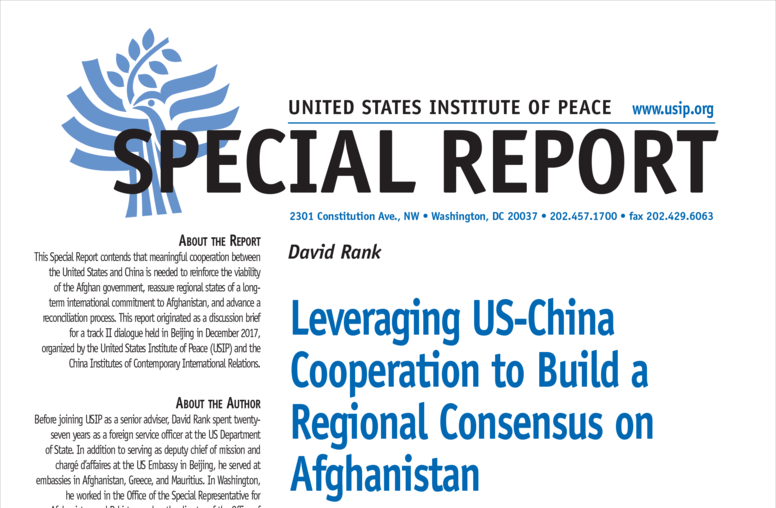
Leveraging U.S.-China Cooperation to Build a Regional Consensus on Afghanistan
The United States and China share an interest in seeing an end to the Afghan conflict that incorporates the Taliban into Afghanistan’s political system and prevents that country from becoming a safe haven for transnational terrorist groups. Yet U.S.-China cooperation on Afghanistan has been...
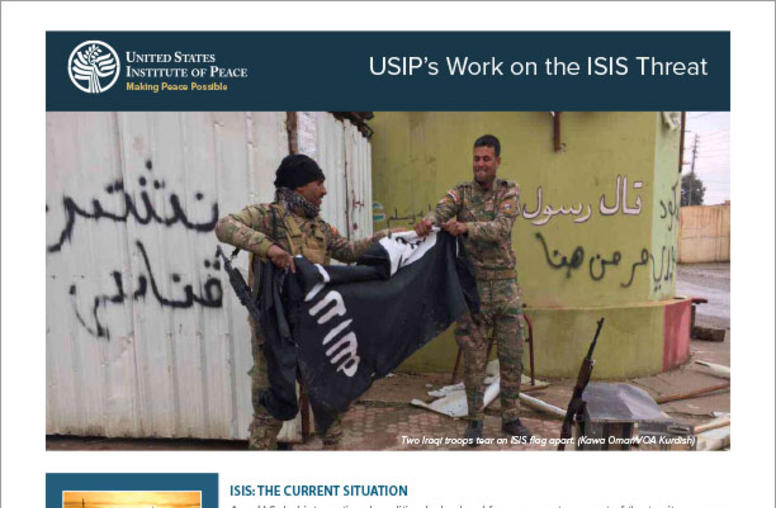
USIP’s Work on the ISIS Threat
The U.S. Institute of Peace has operated on the ground in Iraq since 2003 and in Afghanistan since 2002, as well as in Libya, Nigeria, Syria, Tunisia, and Yemen. As a small, agile institution, USIP works with local leaders and the U.S. government, including the military, to stabilize areas devastated by ISIS, end cycles of revenge, and address the root causes of radicalization, including corrupt and abusive governance.

Scott Worden on the Cease-Fire in Afghanistan
A temporary cease-fire between the Afghan government and the Taliban to mark the end of Ramadan may offer an opportunity to pursue a more ambitious political solution to end the conflict in Afghanistan, says USIP’s Scott Worden. While there is a chance that the cease-fire—the first since the war began in 2001—will be fleeting, as cease-fires are fragile by nature, it is an important trust-building measure. Combined with Afghanistan’s neighbors recently expressing their desire for an end to the stalemate, the cease-fire could be the first step to a more enduring peace.
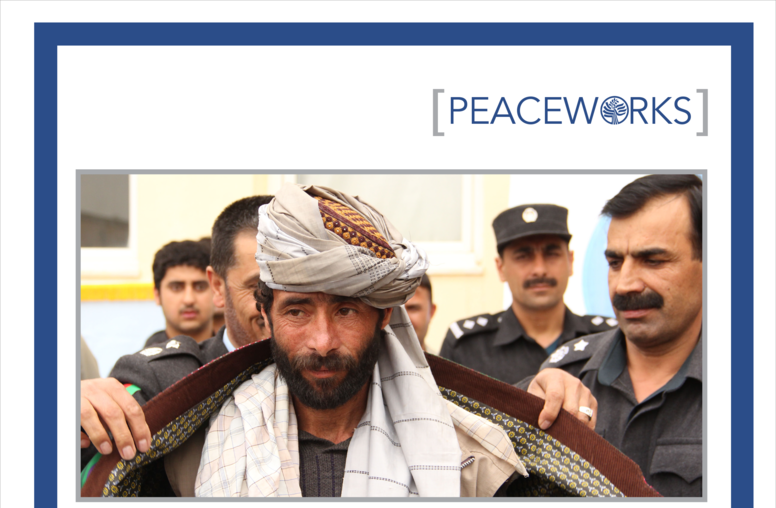
A Negotiated End to the Afghan Conflict
Despite widespread recognition that the only way toward ending the Taliban insurgency in Afghanistan is a negotiated settlement, understanding of the Taliban’s thinking on the subject is remarkably scant. This report attempts to fill this gap by drawing on face-to-face interviews with Taliban foot soldiers, field commanders, and supporters to better understand the movement’s views on why they are fighting, what issues are negotiable, whether they have faith in negotiation as a way to peace, and what a peace process might look like.

Mona Yacoubian on Syria
As the Assad regime consolidates power across Syria, Mona Yacoubian says that regime change is increasingly unlikely seven years into the civil war. But, the conflict remains complex, as the U.S. and coalition forces continue to work to eradicate remnants of ISIS and Israel becomes increasingly concerned over Iran’s military presence in neighboring Syria.

Taking Stock: Analytic Tools for Understanding and Designing P/CVE Programs
This report examines the various analytic tools that have been developed to understand the causes and dynamics of radicalization and violent extremism. The report assesses the strengths and limitations of these tools in informing the design of P/CVE interventions. It considers micro- and macro-level frameworks and models, and the various contexts in which they may be relevant.
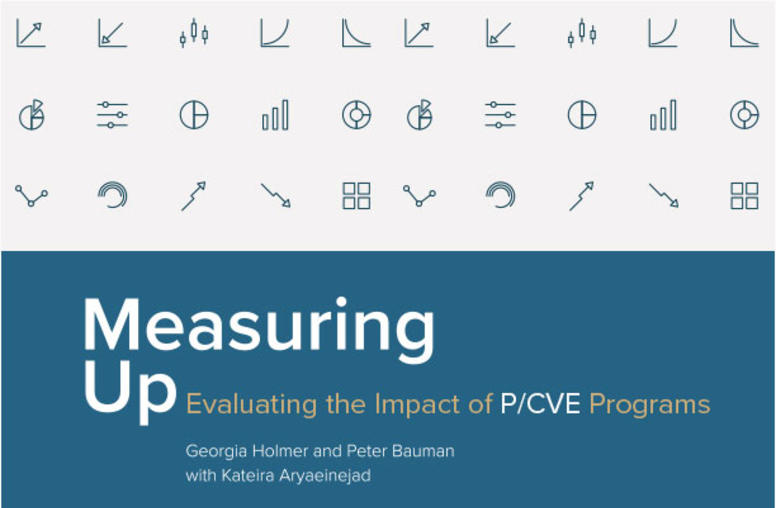
Measuring Up: Monitoring and Evaluating P/CVE Programs
This report considers the various conceptual and practical challenges in measuring the impact and value of programs designed to prevent and counter violent extremism (P/CVE). It examines potential solutions and emphasizes the significance of efforts to assess changes in attitudes, behaviors, and relationships.

Moeed Yusuf on the 10th Anniversary of the Mumbai Attacks
Ten years ago this week, 10 members of Lashkar-e-Taiba—a Pakistan-based terrorist organization—carried out a series of coordinated attacks in Mumbai. Moeed Yusuf explains how the attacks derailed the most promising peace process India and Pakistan had ever managed and how U.S. mediation was critical to averting war in South Asia in the aftermath of “India’s 9/11.”
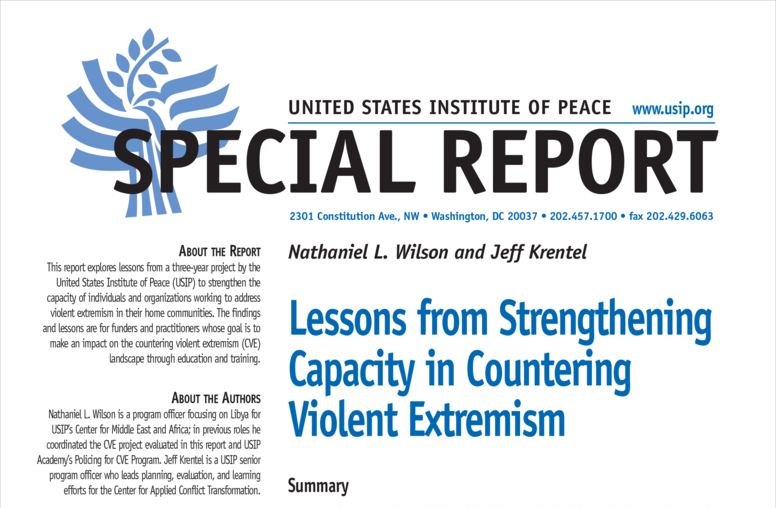
Lessons from Strengthening Capacity in Countering Violent Extremism
An evaluation of a three-year USIP program to strengthen capacity in the field to counter violent extremism revealed that effective project design, thoughtful recruitment strategies, and tailored course content are critical. Participants reported applying what they learned to either adjust existing CVE programs or develop new programs altogether. This report explores the lessons from the project for funders and practitioners to develop more effective projects.